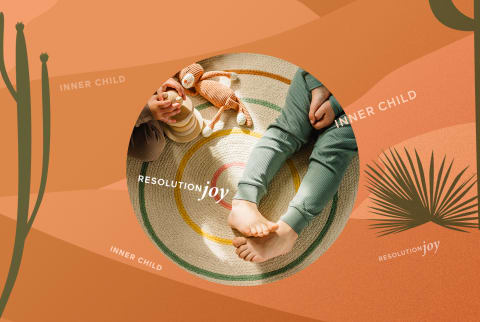After talking with family psychologist Nicole Beurkens, Ph.D., CNS, we’re convinced that this return to childlike play is one trend that should be piggybacked into the new year. Oftentimes, kids will use play and movement to help them process and regulate their emotions. That’s a skill that adults could most definitely benefit from—especially during such emotionally demanding times. “Play, although it may look different for adults, gives the mind freedom to explore and work through uncomfortable feelings and experiences and can also serve as a beneficial distraction,” says Beurkens. “As adults, one of the best ways for us to reduce stress is to slow down and be more mindful—taking in the things that bring us joy in the smallest of ways throughout our day.” “Strategies for self-care, reconnecting to our inner child, and intentionally bringing joy into our lives is more important than ever before,” says Beurkens. “Carve out some time in your schedule on a regular basis, even if it’s 15 minutes, to engage in an activity that you loved as a kid or haven’t done in a while.” If it gets your body moving or flexes your mental muscles, all the better. Here are some ideas for how to play like a kid this year, whether or not you have children of your own: These days, the world is heavy enough. These tips remind us that our well-being routine is one thing that doesn’t need to be so serious. And with that, I’ll meet you at the swingset later; last one there is the rotten egg. Emma received her B.A. in Environmental Science & Policy with a specialty in environmental communications from Duke University. In addition to penning over 1,000 mbg articles on topics from the water crisis in California to the rise of urban beekeeping, her work has appeared on Grist, Bloomberg News, Bustle, and Forbes. She’s spoken about the intersection of self-care and sustainability on podcasts and live events alongside environmental thought leaders like Marci Zaroff, Gay Browne, and Summer Rayne Oakes.



